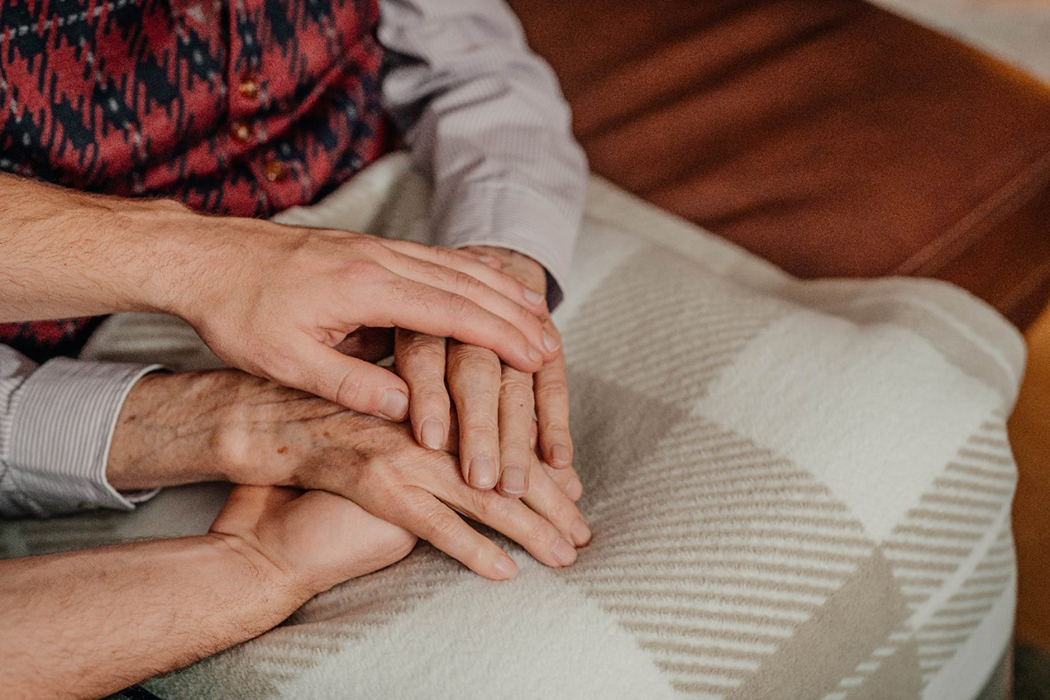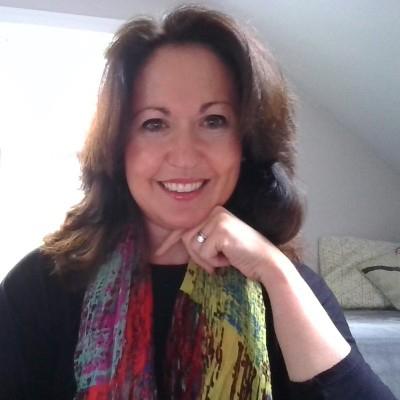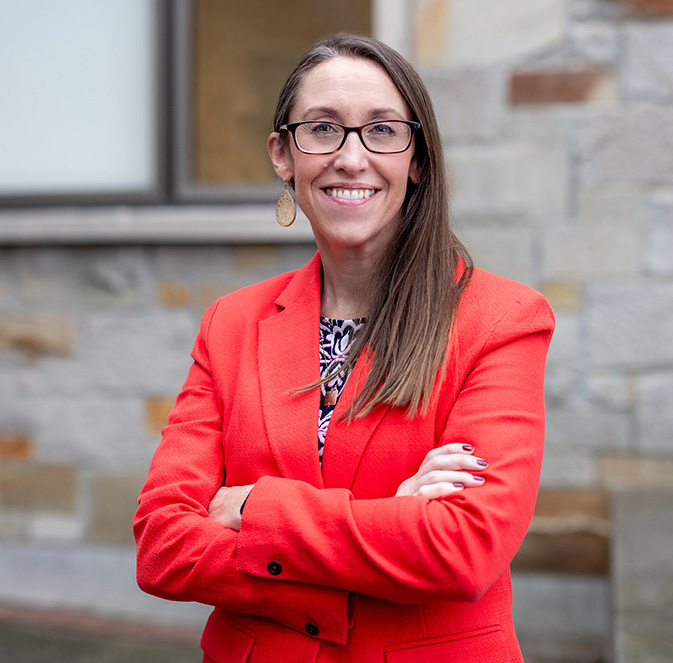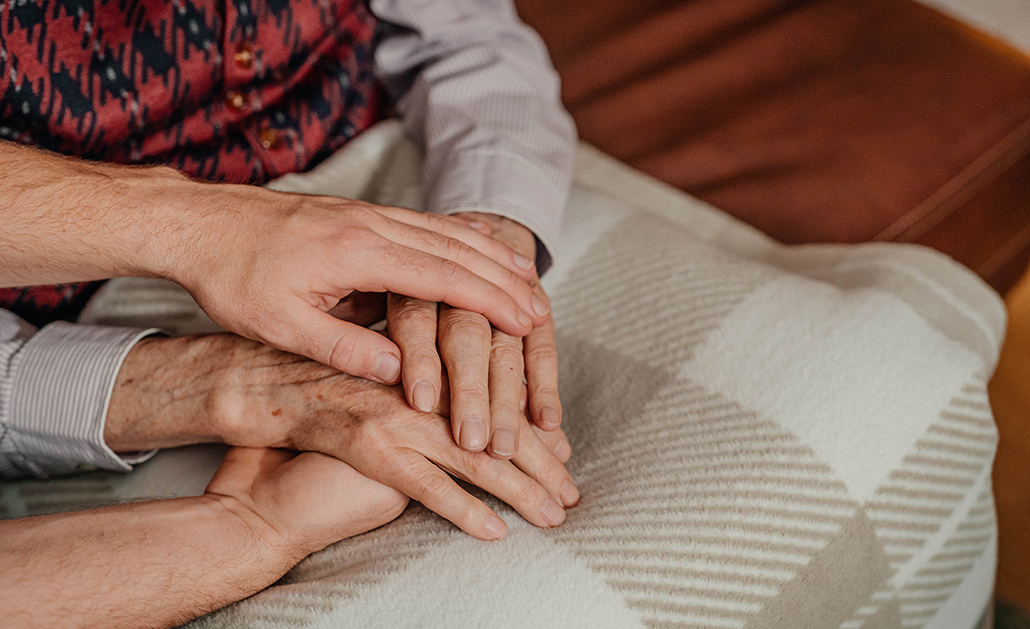
Photo by iStock.
Innessa Manning said that her internship at the Bedford, Massachusetts, Council on Aging reaffirmed her decision to work with older adults after she graduates from Boston College School of Social Work next year.
From September to May, Manning helped aging adults secure basic needs; checked in with older individuals who were recovering from falls; and co-led a support group for those who were struggling to control clutter in their homes.
Now she has a clear vision for her future.
“This experience cemented the fact that I want to work with older adults,” said Manning, a final-year student in the four-year M.S.W. program at BCSSW. “I see that as a huge need and it’s not something that a lot of social workers are going into.”
Manning landed the internship thanks to BCSSW’s annual Spier Fellows in Aging Program, which prepares students to support the health and well-being of people aged 65 and up.
Launched in 2019, the program requires fellows to complete coursework, field placements, and community service projects focused on the nation’s fastest growing segment of the population.
The deadline to apply to the fellowship program for the 2024-2025 academic year is Friday, June 21—and it’s perhaps more important now than ever. That’s because as the number of older adults in the U.S. continues to rise, the number of practicing social workers with a specialty in gerontology continues to shrink.

Innessa Manning completed an experiential learning opportunity at the Bedford Council on Aging as part of her fellowship. Courtesy photo.
“The future of the gerontological social work profession depends on our current and future generations of leaders whose vision and drive will motivate more students to join the profession and shape aging-care policy and practice for years to come,” said Christina Matz, an associate professor at BCSSW who runs the program. “This program gives students the opportunity to learn and explore career options and topics in gerontology while working with older adults in a variety of different settings.”
Over the past five years, more than three-dozen fellows have completed internships at hospitals, retirement communities, labs, and other settings dedicated to improving quality of life for older adults. Their accomplishments have included assessing the psychological health of veterans, comforting cancer patients, and working with clients to preserve their independence.
As part of a community service project last year, one fellow designed a quilt to honor the memory of older adults who have positively impacted BCSSW students. Another fellow created a series of information sessions to help increase public awareness of dementia, a condition that will likely affect nearly 13 million Americans by 2050.
This spring, Manning teamed up with Fellows Sarah McElroy and Henry Moche to host two workshops in collaboration with the Massachusetts Coalition to Build Community and End Loneliness. As part of the first workshop, coalition leader Sandra Harris discussed the dangers of social isolation in older adults, saying it puts them at increased risk for depression, anxiety, and suicide.
Manning said that she’s parlayed her partnership with Harris into an upcoming internship with the coalition. Starting next fall, she plans to work alongside her to ensure all Massachusetts residents feel connected to their community and enjoy a strong sense of social health.
Many final-year fellows have led integrative seminars at their field agencies since 2019, exposing their peers to the range of career paths in aging. One of Manning’s peers gave a tour of the 2Life independent housing community for older adults in Brighton, Massachusetts. Another fellow described what it’s like to be a social worker in the emergency department at Tufts Medical Center. A third, who worked for Boston Healthcare for the Homeless, delved into the complexities of Social Security and Medicare.
Matz described the integrative seminars as the “biggest benefit” of the fellowship, which includes $3,000 stipends through the support of the Spier Family Foundation.
“Whenever possible, these are onsite at agencies so students get exposed to a wide variety of work that can be done in the gerontological social work space,” she said.

Christina Matz, an associate professor who runs the Spier Fellows in Aging Program.
In addition to completing an internship in aging, fellows must agree to take at least one of BCSSW’s three courses in aging: Practice in Health and Mental Health Settings with Older Adults; Policy for an Aging Society; and Dying, Grief, and Bereavement.
These courses, taken as a whole, train students to handle the special challenges of reaching older adults, a client population that’s often invisible to service providers despite a near ubiquitous presence.
A report from the Administration on Aging has found that more than 1 in 6 people living in the U.S. were 65 or older in 2020. Nearly 81 million residents will be 65 or older by 2040, more than double the number in 2000. And over 10,000 people turn 65 every day.
Manning said that personal experiences influenced her decision to study social work as a means of supporting older adults. After holding down a career in finance for 20 years, she quit her job in 2013 to care for her mother, who was living with Alzheimer’s.
Manning quickly realized how tough it was to deal with the physical, emotional, and financial burdens of the disease and eventually chose to enroll at BCSSW to develop a deeper understanding of how to address the unique challenges facing older adults like her mom.
“Just navigating that with her made me realize how difficult it is, not just from an emotional level, but from a systems level as well,” said Manning, who took care of her mother until she died in 2018 at age 77. “All the different providers, all the different care systems—everything costs a lot of money. And just trying to navigate that was really challenging.”
Manning advised other students to consider the Spier Fellows in Aging program, especially those interested in helping older adults remain involved in society. “Working with older adults is very important work because we’re all going to get there someday,” she said. “It’s up to us to forge the path ahead.”



